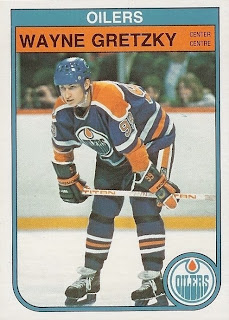Gary Bettman rolled into town in
February of 1993 as the first ever Commissioner of the National
Hockey League. Mario Lemieux of the Pittsburgh Penguins was the Art
Ross Trophy winner in that 1992-93 season with 160 points. Since, the
Art Ross Trophy winner has, with the exception of a few blips, scored
less and less.
This year, Jamie Benn of the Dallas
Stars won the award with just 87 points. That is the lowest total
since Stan Mikita of the Chicago Blackhawks equalled that mark back
in 1967-68.
Each and every year, the NHL's brain
trust meets, frantically coming up with goofy ideas meant to increase
offence. Almost every year, there are tweaks to the rules that do
nothing to increase offence and, quite frankly, make a mockery of the
game.
Well, one simple rule change has the
potential to bring back some goal scoring. It wouldn't actually be a
new rule. It would simply be reverting back to the way things were
before the 1956-57 NHL season. I propose the league makes this change
but with a twist.
As someone who has played hockey for
the past 40 or so years and a who is Canadian, I do not like Gary
Bettman. He may have rescued the NHL from financial disaster but he
has done little for the actual game. The NHL that exists today is for
idiots with short attention spans who are entertained by anything but
what is actually going on on the ice.
However, the tweak I'm proposing might
meet Bettman's approval because it is bastardized from basketball,
Little Gary's first love.
The Two Minute Major
Well, it was never called the 'two
minute major' in the olden days, just a minor penalty. Before the
1956-57 season, when a player was put in the box for a minor
infraction, he remained for the full two minutes, regardless of how
many goals his opponents scored.
The rule was changed to its present
form because of the ridiculous success of the 1955-56 MontrealCanadiens. The numbers were crazy with the Habs accounting for more
than a quarter of the entire league's power play goals. At the
request of the other five teams, the rule was changed to allow the
penalized player to leave the box before the two minutes were up if
his team was scored upon.
I say, it's time to go back to a full
two minute penalty. But, as mentioned, with a twist.
Fouling Out
I propose that the two minute major
doesn't come into effect right from the start of the game. Stealing
sort of from basketball, once a player has been called on his third
minor of the game, then the rule goes into effect. Also, once a team
is called for its fifth minor of the game, the hard two minutes
apply. These numbers are arbitrary but you get the picture.
It has been suggested before, I believe
by Stan Fischler, that the two minute major return but for certain
types of calls like high sticking. That's not a bad idea, either.
One other twist ties in the two minute
major and the penalty shot rule. I have issues with the penalty shot
rule. Currently, which team is really at an advantage when a penalty
shot is called? It's a one shot chance to beat a goalie who is
wearing today's oversized equipment. Would not there be almost a
better chance of scoring over two minutes with a man advantage? The
numbers are actually not that far apart.
Of course, this goes back to Bettman
trying to sell the game to people who don't play the game and don't
know a thing about the game. 'The most exciting play in sport', it
has been dubbed. Bullshit. In a time when half the games end in a
shootout anyway, the penalty shot is nothing but a free timeout for
both clubs.
Here's what I think. They NHL should
allow a team to either accept or decline the penalty shot. If they
decline, they get the two minute major, regardless of whether the
offending player or team has 'fouled out'.
And Another Thing...
Want to make the game more exciting?
Want to make teams play for the win in regulation time? Two things.
- Do a shootout at the start of every game.
- Make each game a proper three point game.
Item number two would probably
eliminate the need for item number one. Most leagues in Europe play
with a proper three points per game system. The IIHF World
Championships are based on this. Before the days of overtime and
shootouts during the regular season, each and every game was worth
the same, two points. If a team won, they got both points. If there
was a tie, each team got a point. Each and every game was valued
exactly the same.
Then came overtime and shootouts. Now,
some games are worth two points and some games are worth three. This
is wrong. It just doesn't make any logical sense. Each game should be
three points. Three points go to the winner and none to the loser if
the game is decided in regulation. The split is two points / one
point if the game is decided in extra time.











